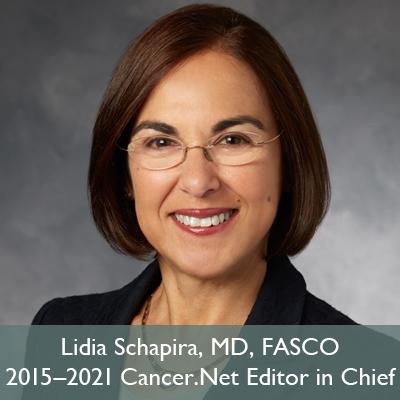
“How are you?”
Our response is almost always an unthinking “well.” We have been socialized to respond this way, and most of us prefer to appear polite and cheerful in response to this common greeting and question. And yet we are living through extraordinarily stressful times, and many of us are not completely truthful when we avoid the question, nod, or mutter a quick “good” or “well.”
The COVID-19 pandemic has radically changed our personal and working lives. It has changed cancer care and has had impacts on people receiving cancer treatment, survivors, caregivers, and members of the professional team. For example, all non-essential outpatient visits are now delivered via telehealth and are sometimes delayed. Trips to the hospital and infusion centers need to be carefully timed and have a very different feel than they did during “normal” times. Visitors are not allowed in most centers or are restricted to only 1 person who provides assistance with essential activities. Masks limit the spontaneity of our interactions and deprive us from seeing reassuring smiles and facial expressions of concern. Plus, there is always a worry of contagion or illness lurking in the background. Therapy dogs are nowhere in sight, and volunteers are staying at home. This is cancer care with little human touch.
It is no wonder that we are all experiencing symptoms of stress. We are all struggling to find acceptable childcare options while managing work schedules. Oncologists and people with cancer are faced with making treatment decisions that may involve delaying or changing the treatment plan, both of which carry risks for the patient. So it comes as no surprise that our sleep, mood, appetite, and energy levels are in constant turmoil.
Simple measures may help you get through a tough day or 2. A vigorous workout, a good night’s sleep, meditation, or relaxation exercises may temporarily restore a sense of balance. But if symptoms persist, it may be wise to ask for professional help. Anxiety and distress are common and increasing during these difficult times. We haven’t fully mapped out the emotional landscape of living with cancer during COVID-19, so we need to remain vigilant to physical and emotional signs of being overwhelmed by stress.
Recently, I listened to 2 different and fantastic podcasts by strong and able women, one an oncologist and the other a former First Lady. Both shared how hard it was to acknowledge that there are days when they are “not OK,” or maybe even a little depressed. Having a caring family and coworkers certainly helps provide a buffer against these difficult feelings, but it may not be enough. It takes courage to ask for professional help, and yet preventive mental health is designed to help keep us productive and calm and to avoid experiencing symptoms of severe anxiety or depression.
If you are experiencing stress, anxiety, or depression during COVID-19, know you are not alone. Cancer.Net offers resources on managing these emotions during difficult times. You can also read about how to seek professional help and the benefits of speaking with a mental health counselor. Finally, learn more about what people with cancer should know about COVID-19 in these Cancer.Net blog posts. Taking care of yourself and your mental health is more important now than ever before. Remember that there are resources available to help.
